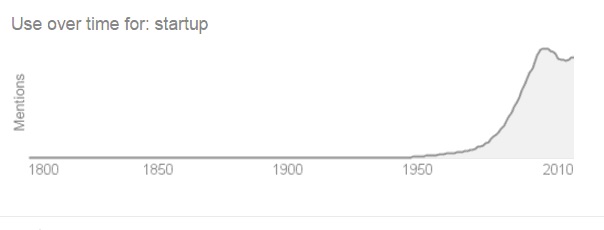So, What Exactly is a Startup?
Terms often get misused in business. Startup is one of those terms. People believe that if you simply start any business, that you are automatically a startup company. Startups are a little deeper than that and require a little more work than simply setting up a store front and hoping for business. Get guaranteed funding for your startup even with bad credit.
A startup is an investment that will not make you an initial profit and requires the utilizing of investors in order to make it grow. And with the recent startup and VC boom in recent years, it’s important to understand what exactly a startup is.

The Definition of a Startup
Merriam Webster offers us a rather disappointing definition:
1) the act or an instance of setting in operation or motion
2) a fledgling business enterprise
Considering that this startup definition can technically encompass an ice cream shop, let’s look for something better.
Investopedia gives us more financial insight into their definition of startups:
A startup is a company that is in the first stage of its operations. These companies are often initially bankrolled by their entrepreneurial founders as they attempt to capitalize on developing a product or service for which they believe there is a demand.
And finally, the US Government gives us what seems to be the most accurate definition of a startup, as defined by the Department of Commerce:
- Up to five years from the date of incorporation.
- If its turnover does not exceed 25 percent in the last five financial years.
- It is working towards innovation, development, deployment, and commercialization of new products, processes, or services driven by technology or intellectual property.
In recent years, the US Government has started to equate small businesses with startups, but we’l get to that later in this article.
In Real Terms: The Shade Metaphor
One of the best ways to describe a startup is in the case of the desire of shade. There is one person that simply puts up an umbrella and gets the shade that they need instantly. In business this could be determined by a person that just buys into an already successful company as a franchisee. In this case the franchisee is already backed by the company’s reputation and is quite likely to see immediate success without having to do much of the leg work that is involved in getting a business off the ground.
A startup however can be looked at as a person looking for shade on the same street, but instead of simply putting up an umbrella, they decide to plant a tree. The tree starts out as a seedling and has to make it through the harsh environment. Sometimes the first, second, and even the third attempt at planting the tree will fail. It is up to the gardener to keep on trying until the formula of the right fertilizer and sunlight are ultimately reached. After years of trial and error, they may in fact come across a tree that prospers. Not only does the tree prosper and grow, but eventually it gives off much more than shade with the fruit it begins to produce. The tree now provides sustenance for many more people other than just the one who planted it. The umbrella, or small business remains the same with little to no growth potential.
Nurturing Ideas
A startup is about the nurturing of an idea and the bringing about of that idea in any manner you can. You can fail or you can fly when a startup is involved, but we see countless companies investing in these startups, not for the initial reward that they will gain, but from the ultimate goal of investing in a company that can result in much more profit potential down the road. Big business investors understand the process because many of them have had to go through it themselves and take their startups to big business status over time.
For more about investing and accounting practices, we’ve written a post about best accounting practices for startups, and how to keep your money in order. We’ve also released a line of startup t-shirts for anyone who needs some startup inspiration.
In Terms of Money:
Regarding money, a startup is relatively simple. It is the lowest level of successful overall capital. We can describe this with the 50, 100, 500 rule.
Run Rates
If your company’s revenue rate run rate is $50 million forward 12 months, you have more than 100 employees, and are worth more than $500 million, then you cannot classify yourself as a startup. To truly be classified as a startup your numbers have to fall below these. Where this may seem strange that making that amount of money would keep you in the startup bracket, we can look at it like the large businesses themselves do.
Startups are brought forth from an initial idea and grow from there and therefore when you look globally and from a business standpoint a small capital business is one that is worth between $300 million and $2billion with mid-range being between $2 billion and $10 billion. The largest stage of business capital is for those that have over $10 billion in capital.
Startups vs Small Businesses
Small business: any business or company that is meant to be self sustaining, with the expectation to generate revenue very early on. It does not need significant financial backing per-say, and is generally considered stable and less risky. Less upside than startups.
- A small business is a self-sustaining organization that is designed to generate revenues or even profits from Day 1. It might not require as much investment and is less risky. However, it also doesn’t have a lot of upside.
- Startups are bootstrapped, requires capital from founders, friends, family, and in later rounds, institutional investments. Revenue is not necessary in early or even mid stages. Just the perception of revenue is enough for a startup to be successful. Tons of upside as well.
The business world is full of large corporations that are not and have not been classified as startups in quite a long time. Small businesses are just entities that can pass away at any time and tend to be limited in what they can accomplish. A startup may start out with little capital and a very small number of investors, but with much time and effort in figuring out what works, that startup can grow quite rapidly. Investors know that they are not going to get their initial investment back within just a few months and therefore they are patient when it comes to startups. Startups are what big business starts out as and everyone has to start somewhere.
So, when someone asks you what a startup is, you can reply that the definition is murky, but in 7 words or less, it is essentially “a risky small business with significant upside”.
Additional resources from the US Government related to startups can be found here.


